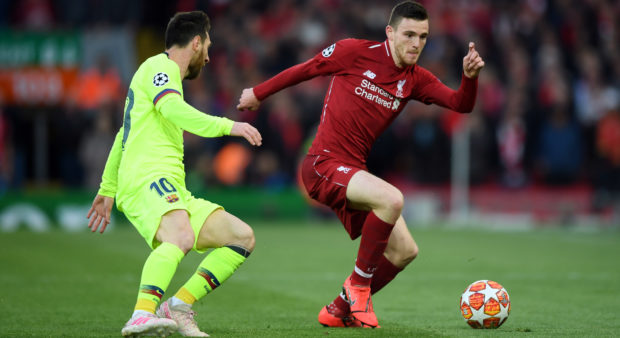The English Premier League is the best in Europe, and therefore in the world – four clubs in the finals of the two European trophies proves it.
Many folk don’t like this. They argue that there are very few English players in those four sides, and that at the top level English football is full of foreign players, is over-hyped and overpaid.
That misses the point that the game of football is global and many Scottish sides also have a fair share of players from outwith the country.
In fact they have had since the days of Hal Stewart at Morton and Jerry Kerr at Dundee United, in the 60s, with their Scandinavian contingents.
The simple unpalatable truth of the matter is that we’re witnessing an inexorable move towards two different sports within one – the super clubs and the community clubs.
Plans for a European Super league guaranteeing the top clubs entry, indicate the direction of travel.
The Bosman ruling which freed players from the tyrannical reign of clubs and chairmen, who could treat them like chattels, set much of this in motion.
Once players were free to move on at the end of their contract without a transfer fee the goalposts changed dramatically, shifting power from the clubs to the top players and the top clubs.
There have always been clubs which were much bigger and richer than others, with bigger supports and deeper pockets, but pre Bosman they had to pay a fee if they wanted to take the best players from smaller clubs, which circulated money throughout the game.
Only rarely now will a Scottish club receive a hefty fee for a player. Usually they will simply move at the end of their contract for free.
That requires a strategy similar to Celtic, where excellent player identification becomes crucial.
Emerging players with serious potential from anywhere in the world are identified, developed, and sold on during contract for healthy profit.
However, since the Parkhead club are dominant and much richer than others, although not being in the top echelon, they can afford to pay very good wages to attract those kind of players, with the assurance that they can move to the real big time if offers come in for them.
For other clubs it’s a hit-and-miss operation at the lower end.
The English game has marketed itself brilliantly, securing TV deals which have made it a dominant force throughout the world market.
Scottish fans complain bitterly that we should get a fairer share of the pie.
That argument has merit when talking about the state broadcaster and licence money which we all have to pay, but with private broadcasters, it has no validity. Market forces dictate, and the truth is we are small beer.
Two different sports are emerging before our very eyes and the move is unstoppable.
Football is witnessing the split into community clubs v big business clubs.
No one is taking anyone’s club away from them – the choice will be available to watch both, but the poor and the weak are being firmly excluded from the rich man’s football table.


